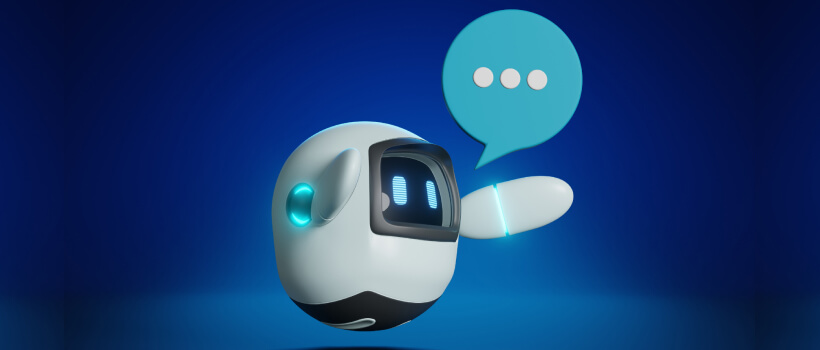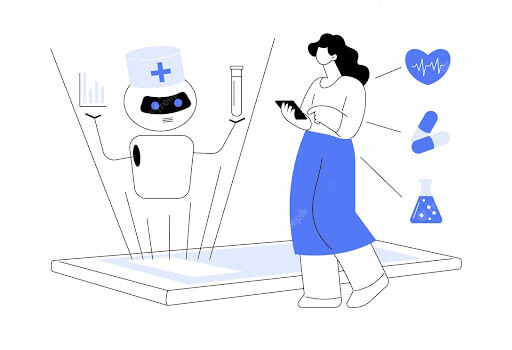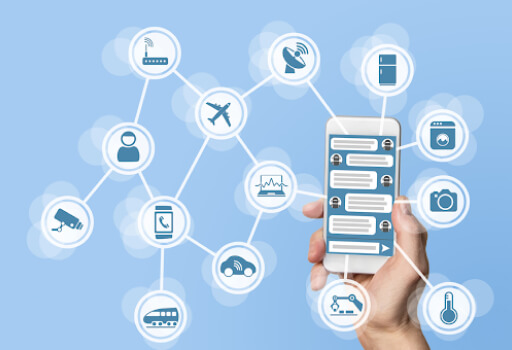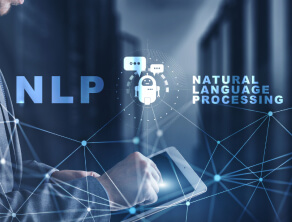Chatbots in Healthcare: Revolutionizing the Future of Patient Care

Introduction
In today’s fast-paced digital world, the healthcare industry is constantly seeking innovative solutions to enhance patient care and improve overall efficiency. One such solution that has gained significant traction in recent years is the use of chatbots in healthcare. Leveraging advancements in artificial intelligence (AI) and natural language processing (NLP), chatbots have emerged as powerful tools that can revolutionize the way patients engage with healthcare providers. From providing instant medical information to scheduling appointments and even offering mental health assistance, chatbots offer a wide range of benefits in the healthcare sector.
The Importance of Chatbots in Healthcare
The adoption of chatbots in healthcare is driven by several key factors. Firstly, chatbots enable healthcare organizations to provide 24×7 availability to patients. In emergency situations, where timing is critical, chatbots can offer immediate assistance by recognizing symptoms and providing relevant information. This ensures that patients receive the care they need in a timely manner, regardless of the time of day.
Secondly, virtual healthcare assistants excel at collecting and engaging with patient data. By interacting with users, chatbots gather valuable information that can be used to personalize the patient experience and improve future business processes. Unlike traditional websites, chatbots offer a more interactive and user-friendly platform for patients to seek information and support.
Furthermore, chatbots have the unique ability to attend to multiple patients simultaneously without compromising the quality of care. Healthcare professionals are often limited by their capacity to provide one-on-one care, but chatbots can engage with numerous clients at once, ensuring that no patient is left behind. This scalability allows healthcare organizations to optimize their resources and focus on patients who require more personalized attention.
Another essential advantage of chatbots in healthcare is their ability to provide instant information. In critical situations, where every second counts, chatbots can rapidly deliver accurate information to healthcare professionals. For instance, if a patient arrives at the hospital with a time-sensitive condition, the chatbot can quickly provide the doctor with the patient’s medical history, allergies, and previous check-ups, enabling the healthcare provider to make informed decisions promptly.

Key Use Cases of Chatbots in Healthcare
Chatbots in healthcare offer a wide range of benefits. Let’s explore some of the key use cases where chatbots are transforming the way patients interact with healthcare providers.
1. Easy Scheduling of Appointments
Scheduling appointments is a common task in the healthcare industry, but it can often be challenging for patients due to slow applications or complex information requirements. Long wait times can lead to patient dissatisfaction and even prompt patients to change their healthcare providers. Chatbots provide a seamless solution to this problem by offering a user-friendly messaging interface for appointment scheduling. By integrating with CRM systems, chatbots can efficiently manage appointments based on the availability of doctors. This not only streamlines the process for patients but also helps medical staff keep track of patient visits and follow-up appointments.
2. Providing Necessary Medical Information
Healthcare chatbots are trained on vast amounts of healthcare data, including disease symptoms, diagnoses, and available treatments. This enables them to provide patients with accurate and reliable medical information. By simply interacting with a chatbot, patients can access information specific to their condition, such as symptoms, treatment options, and preventative measures. This empowers patients to make informed decisions about their health and well-being.
3. Symptom Assessment
Chatbots are increasingly being used to assess patient symptoms and provide initial medical advice. By leveraging natural language processing (NLP), chatbots can understand user inquiries regardless of the variety of inputs. Patients can describe their symptoms to the chatbot, which can then analyze the information and suggest potential illnesses or conditions. This allows patients to gain insights into their health without physically visiting a healthcare facility, saving time and reducing unnecessary visits.
4. Insurance Coverage and Claims
Chatbots can assist patients with their insurance coverage and claims, simplifying the process and providing timely information. Patients can inquire about their current coverage, file claims, and track the status of their claims through a healthcare chatbot. This not only improves the patient experience but also enables healthcare providers to streamline billing and insurance-related processes.
5. Mental Health Assistance
Mental health is a critical aspect of overall well-being, and chatbots in healthcare can play a significant role in providing support and assistance. Chatbots trained in cognitive behavioral therapy (CBT) can offer guidance and coping strategies for patients with conditions such as depression, anxiety, and post-traumatic stress disorder (PTSD). Patients can interact with the chatbot via text, voice, or video, allowing for personalized and accessible mental health support.
6. Prescription Refills
Automating prescription refills is another valuable application of chatbots in healthcare. Rather than waiting for weeks for their prescriptions to be filled, patients can interact with a chatbot to check the status of their prescription and receive notifications when it is ready for pickup or delivery. This improves medication adherence and reduces the administrative burden on healthcare professionals.
7. Wellness Program Recommendations
Healthcare organizations often offer wellness programs to promote healthy habits and disease prevention. Chatbots can assist in increasing enrollment and engagement in these programs by providing personalized recommendations based on user input. By analyzing user sentiment and employing NLP, chatbots can understand user intent and suggest suitable wellness programs, boosting engagement and improving overall health outcomes.
8. Scalable Working Hours
Scalability is crucial for any organization, especially in the healthcare sector. Chatbots integrated into customer support can handle real-time discussions and provide consistent assistance regardless of the volume of inquiries. This ensures that patients receive prompt responses and support, even during peak hours. By leveraging chatbots, healthcare organizations can optimize their resources and enhance customer satisfaction without adding additional costs or staff.
9. Patient Data Collection
Chatbots in healthcare serve as an effective tool for collecting patient information. By engaging in conversations with patients, chatbots can gather essential data such as name, address, symptoms, current doctor, and insurance details. This information can be stored securely and used to facilitate patient admission, symptom tracking, doctor-patient communication, and medical record keeping. Chatbots streamline the data collection process, improving efficiency and accuracy in healthcare operations.
10. Instant Response to Queries
Chatbots excel at providing instant responses to frequently asked questions. Patients often have queries about hospital working hours, payment tariffs, insurance coverage, and other general information. Chatbots in healthcare can act as a one-stop shop, instantly answering these questions and ensuring that patients receive accurate and concise information. By offering a user-friendly and interactive platform, chatbots enhance the patient experience and reduce the burden on healthcare staff.

The Future of Chatbots in Healthcare
As the healthcare industry continues to embrace digital transformation, the role of chatbots in healthcare is poised to expand further. Advances in AI and NLP technologies will enable chatbots to become even more sophisticated in understanding patient needs and providing personalized care. Future developments may include chatbots capable of handling complex medical diagnoses, remote monitoring of patients, and even emotional support for mental health conditions.
The market for virtual healthcare assistants is projected to grow significantly in the coming years, driven by the increasing demand for efficient and accessible healthcare services. Healthcare organizations that embrace chatbot technology will be better equipped to deliver exceptional patient care, optimize their operations, and stay ahead in an ever-evolving industry.
Conclusion
In conclusion, chatbots are transforming the healthcare industry by offering 24×7 availability, collecting and engaging with patient data, attending to multiple clients simultaneously, providing instant information, and streamlining various healthcare processes. With a wide range of applications, chatbots are revolutionizing the way patients interact with healthcare providers, improving efficiency and enhancing the overall patient experience. As the future unfolds, virtual healthcare assistants will continue to play a crucial role in shaping the delivery of healthcare services, supporting healthcare professionals, and empowering patients to take control of their health and well-being.
Also Read: Machine Learning in Healthcare: All You Need to Know.
![Blog-[x]cube LABS](https://d6fiz9tmzg8gn.cloudfront.net/wp-content/uploads/2016/06/blog_banner.jpg)





